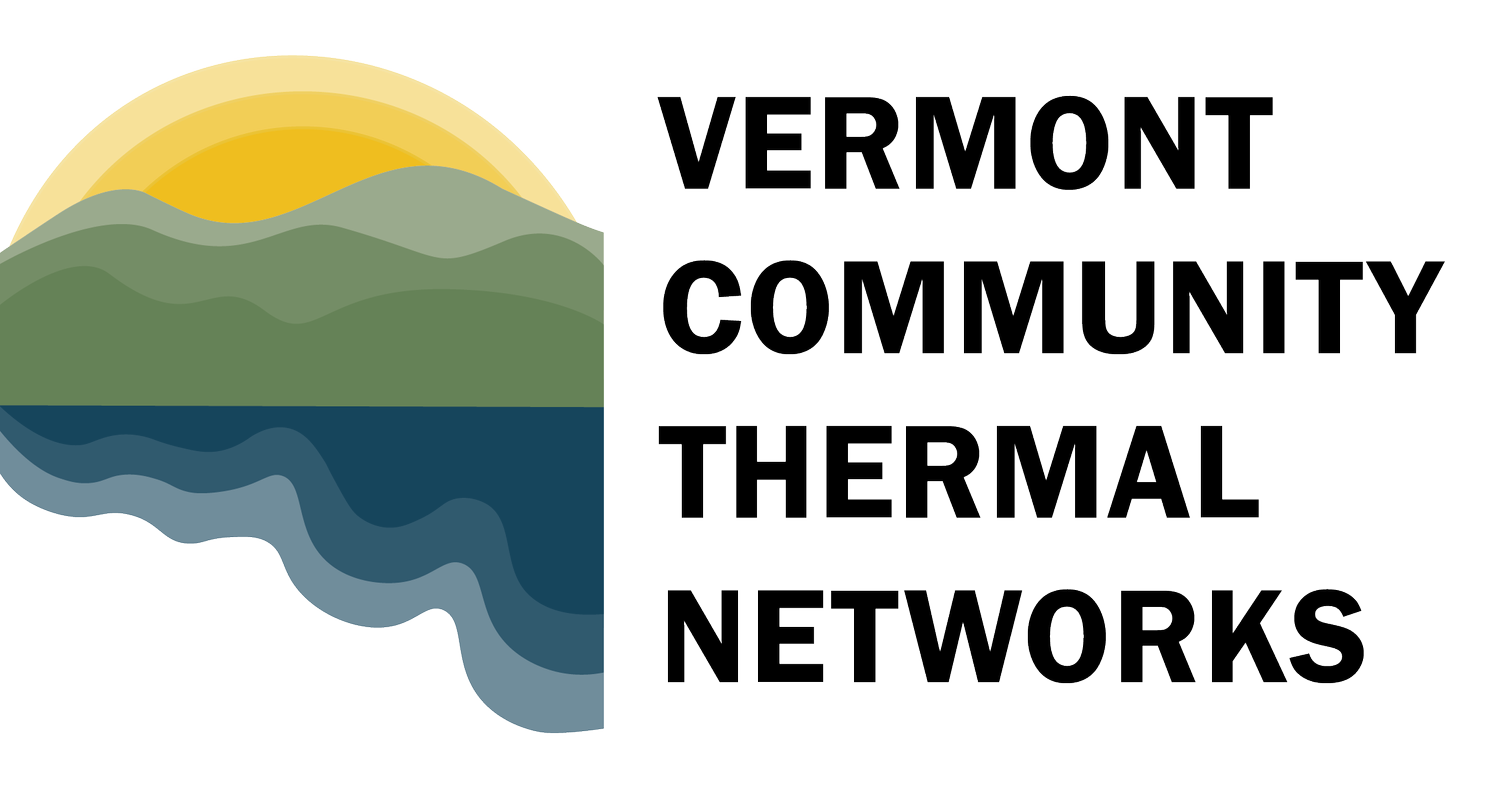WHAT DO VERMONTERS NEED TO KNOW?
We’re asking Vermonters add thermal energy networks to our state’s clean energy solutions, but what do people need to know in order to understand and implement them?
We started 2023 by inviting a range of Vermonters to share their thoughts and review what we have so far.
We collected great feedback, had helpful discussions, and everyone stayed longer to keep talking.
We’ll be working to incorporate suggestions and respond to all the insights about how we can communicate about thermal energy networks in Vermont.
Our Focus Groups:
Previewed a short video on networked geothermal energy, the benefits, and what we can do in Vermont
Clicked through our website and asked: How much info is enough? What’s missing?
Collected questions for an FAQ
Imagined where we’d love to see a thermal energy network working in Vermont
We’ve summarized much of what we heard in the lists below. If reading through them sparks more questions or ideas, please share them with us at info@vcga.net.
SUMMARY
VIDEO PREVIEW
Show more images of Vermont. This is a non-industrial solution. Show how it can be part of nature and embedded in Vermont’s character.
More pictures of community buildings: schools, nursing homes, etc.
Emphasize how these systems capture heat that would otherwise be wasted (e.g. from big buildings, grocery stores, data centers). And how much more efficient the systems are when multi-use buildings are linked in a network.
A BIG QUESTION TO ADDRESS: How to put equity front and center
WHY is geothermal an equitable solution?
HOW are thermal energy networks equitable?
How can low income neighborhoods get involved?
AVOID CONFUSION
Clarify the difference between deep geothermal energy and ground-source heat pumps operating off of shallow boreholes.
Show how the ambient temperature of the ground (about 55 degrees) gets turned into heat or cooling. Will my house also be 55 degrees year round?
QUESTIONS FOR AN FAQ
Does this technology work in our climate?
How do I know if this will work for me?
Do I need a backup system?
Where does the responsibility of the owner come in? What would I be responsible for as a homeowner, landlord, business owner?
What are some new financial models that can make thermal networks more affordable and possible in Vermont?
How reliable is the infrastructure? What’s the anticipated lifetime? (In Montpelier, water pipes are breaking all the time.) What kinds of pipes and materials?
Answer: The plastic pipes used now are expected to last 50+ years. No one knows for sure yet, as the oldest systems using these materials are still younger than that, but many are optimistic that they’ll last longer than just 50 years.
MORE MATERIALS TO CREATE
Another video or resource on the nuts and bolts of the systems
People care about water quality. They need to understand a closed-loop system.
Information on incentives that can help make these systems more affordable in Vermont
GOOD ADVICE
Keep the website simple and clear. Share smaller chunks of info on the Basics page, then create sub-pages for deeper dives.
Move the list of benefits closer to the top of the page. This is what people care about.
People want comfort and control of their home’s heating and cooling. Help them understand how these systems make that possible.
BONUS: Where would you like to see a geothermal network installed in Vermont?
Bristol: Town center and housing nearby. The community has been searching for energy solutions for a while.
Swanton: Abenaki/Missisquoi band community, lots of individual houses. People there could really use the clean energy and financial relief these systems provide.
Williston, Colchester, Essex: Lots of new development and land.
Burlington: It would be great to retrofit lower-income homes there.
A small downtown with a variety of businesses
Probably need to do new construction first as a proof of concept because that will be simpler and less expensive than a retrofit
Better to prove this outside of Chittenden County even though there’s a lot of new construction there
Montpelier: Is it a plus or not-so-great to start there? The Country Club Road project is owned by the city and now in the community conversation phase.
Deciding on a location should be holistic: Consider housing needs, jobs, transportation, etc.
Do we have to choose between the best story and the easiest project to start?


